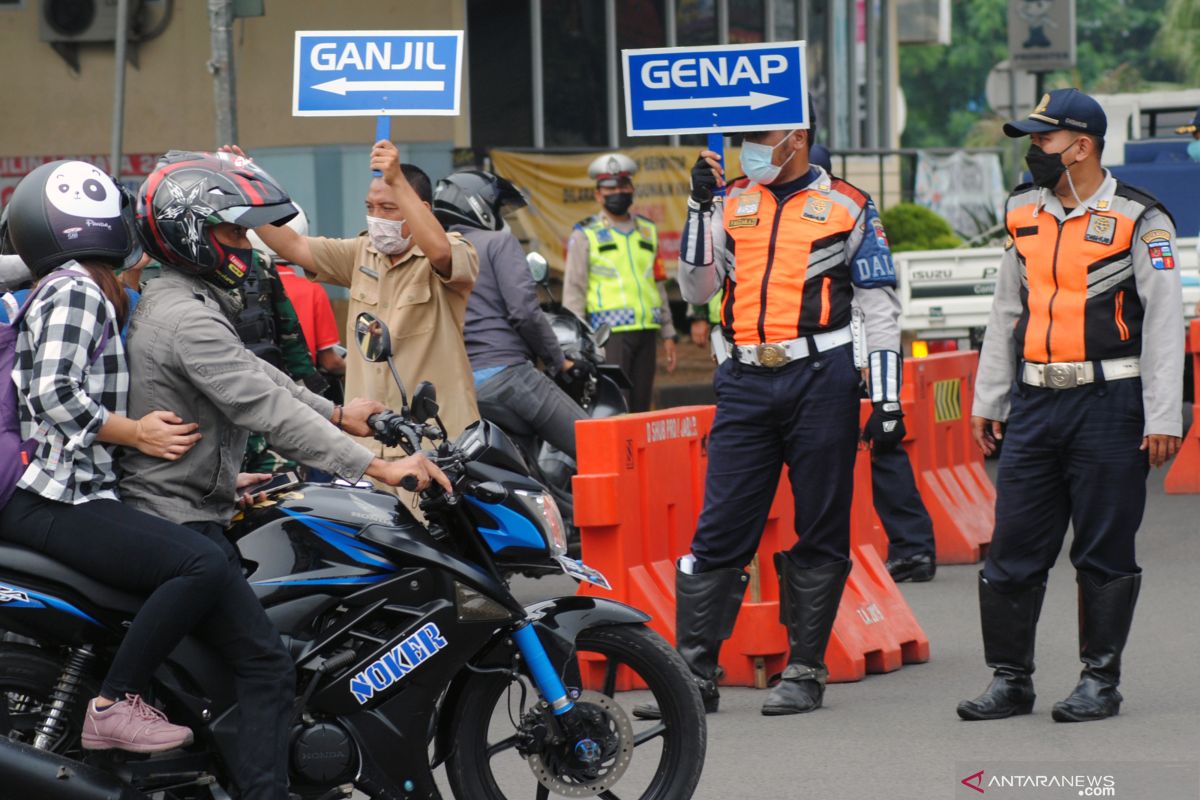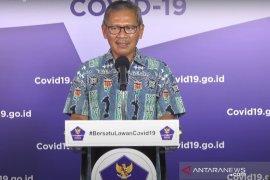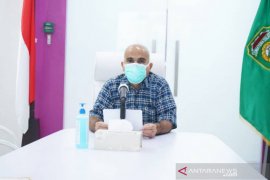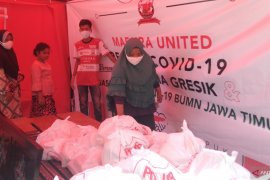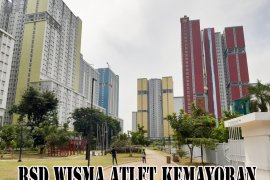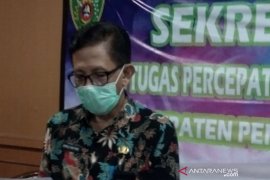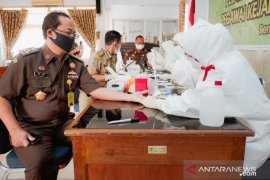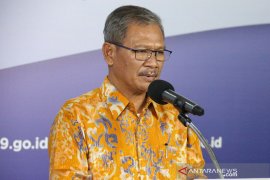With COVID-19 spikes reported in areas outside Java and Bali, the government has decided to expand public mobility restrictions in several islands.
As a result, students are studying online from home. Employees are working from home as most offices have been temporarily closed, except for essential work. All malls, department stores, tourist sites and amusement centers, as well as places of worship have also been closed. Restaurants are only serving take-away orders. People have been advised to remain at home, except for emergency and limited purposes.
Domestic travelers boarding flights are being asked to present vaccine cards, showing they have at least taken one vaccine dose, and negative results of a RT-PCR test, taken at the most two days (48 hours) prior to departure.
Travelers using land or sea transportation, including trains or private cars, are also being asked to present vaccine cards, and negative results of RT-PCR tests, taken two days prior to departure, or negative results of rapid antigen tests, taken at the most one day (24 hours) prior to departure.
Related news: Community restrictions reduce number of COVID-19 cases: Jokowi
The country on July 30, 2021, reported 41,168 new cases, bringing the nationwide tally to 3,372,374. Meanwhile, with 1,759 additional fatalities, the death toll climbed to 92,311.
With a population of over 270 million, Indonesia is the world's fourth most populous nation.
President Joko Widodo (Jokowi) has admitted that the abrupt entry of the Delta variant in Indonesia has caught the nation by surprise. The Delta variant has a very high transmission rate and causes more severe symptoms than the original virus type, he said.
"Back in January, February, March, April, and May (2021), COVID-19 (transmission) had started to decline. If the coronavirus disease (spread) went down, the economy would definitely grow. It was actually apparent, yet unexpectedly, there was something called the Delta variant, a new type of variant of the disease," the President said on July 30, 2021.
To stem the drastic spike in COVID-19 cases, the government first imposed an emergency public movement restriction (PPKM) from July 3 to July 20, which was later extended twice from July 21 to July 26, and then again from July 26 to August 2, with a slight change in nomenclature to PPKM Level 4.
PPKM Level 4 has been applied in areas where there are more than 150 COVID-19 cases per 100 thousand people per week.
On July 25, 2021, Widodo explained that the implementation of PPKM Level 4 was undertaken after considering the aspects of health, economy, and social dynamics of communities.
The government has made some adjustments in rules related to people-based business activities, under a strict implementation of health protocols, he added.
Under the new rules, those allowed to serve consumers include vendors at traditional markets selling basic necessities, laundry service providers, barbershops, street vendors, and traditional retailers, he informed.
Related news: Number of MRT Jakarta's daily passengers down 80% in July
Vendors at traditional markets selling non-staple foods are, for instance, being allowed to run their business from morning to 3 p.m. local time by applying a maximum 50 percent capacity.
Traditional retailers, laundry service providers, and those running barbershops, among others, can run their businesses from morning to 9 p.m. local time.
Those running small food stalls and street vendors can run their business from morning to 8 p.m. local time, but they are obliged to comply with strict health protocols.
To reduce the burden on communities and small businesses affected by the COVID-19 pandemic, the government has committed to providing them with social assistance.
Earlier Coordinating Economic Minister Airlangga Hartarto had revealed that the PPKM Level 4 will not only be implemented on Java and Bali Islands, but also in 45 districts and cities in 21 provinces on the islands of Sumatra, Kalimantan, Papua, Sulawesi, Maluku and Nusa Tenggara, as those regions have also seen a spike in COVID-19 cases.
The PPKM implementation has been expanded to other regions because there are also reports of COVID-19 spikes in regions outside Java and Bali, he said.
Following the strict enforcement of PPKM for nearly one month, several regions in Java and Bali have seen a gradual drop in their hospital bed occupancy rates, although the number of new cases has not decreased significantly enough, he added. The government expects PPKM to reduce new cases to about 10 thousand cases a day, he said.
Role of RTs and RWs
Meanwhile, to assist the first handling of patients, spokesperson for the COVID-19 Handling Task Force, Wiku Adisasmito, has urged regional administrations to increase the number of COVID-19 command posts at the village level, as most hospitals have been overwhelmed by the recent infection surge.
"One of the important roles in the first handling of residents affected by COVID-19 is (played by) neighborhood units (RT) and community units (RW) administrators. During this pandemic, the RT/RW are helping village and community health centers (Puskesmas) officials to handle COVID-19," he said at a press conference on July 29, 2021.
Related news: Self-isolating Jakartans urged to inform COVID-task force, RT heads
RTs and RWs are playing a role in monitoring and registering cases as well as monitoring compliance with health protocols and recording and supporting vaccination programs, Adisasmito said. Hence, the role of RTs and RWs must be supported through good coordination with other elements, he added.
It is important that there is a command post (Posko) at the village level to serve as a liaison between various elements of the community and a coordinator who can report on performance, he said.
However, there are still 58,687 villages that have not yet established such command posts, he added.
"Unfortunately, there are still many villages in Indonesia that have not established (COVID-19) command posts. As of July 25, 2021, only 27 percent of villages in Indonesia have formed such command posts," Adisasmito noted.
Most of the areas that have not yet established Posko are located in North Sumatra, Papua, East Java, Central Java, South Sumatra, East Nusa Tenggara, South Sulawesi, West Java, Lampung, and Southeast Sulawesi.
Volunteers at the local command post are also being asked to raise awareness on mask wearing, hand washing using soap, maintaining a safe distance, crowd prevention, and mobility restrictions.
The good news is public compliance with health protocols has increased in nearly every province of Indonesia, head of the behavior change division of the Task Force for COVID-19 Handling, Sonny Harmadi said recently.
Related news: Governor Baswedan opens forum on Jakarta's public transport system
According to the task force, during the period between September 7, 2020 and July 20, 2021, compliance with the rule on wearing masks was 84.77 percent, social distancing and avoiding crowds was 87.11 percent, while the compliance score for the rule on hand washing using soap in running water was 7.65 out of 10.
The increasing public compliance with health protocols to prevent transmission of the coronavirus has partly been aided by behavior change ambassadors.
From September 7, 2020 to July 20, 2021, the COVID-19 task force recruited 60,324 people as ambassadors for behavior change in 126 districts and cities in seven provinces.
The behavior change ambassadors have so far educated 25,411,040 people about COVID-19 and distributed 5,329,992 masks.
However, there has been a slight increase in the percentage of residents refusing to take part in educational activities regarding the implementation of health protocols nationally from an average of between 0.8 and 0.9 percent to 1.2 percent during the enforcement of Level 4 public movement restrictions (PPKM), Harmadi said.
"Our society is very heterogeneous. Of course, there are variations in people's compliance with health protocols. One thing which is important is that people's knowledge about 3M is very high, it is very good," he noted.
The fight against the pandemic, however, is far from over, and no one can say when it will end.
Related news: Red Cross builds community-based isolation shelters in Jakarta
Editor: Rahmad Nasution
Copyright © ANTARA 2021
